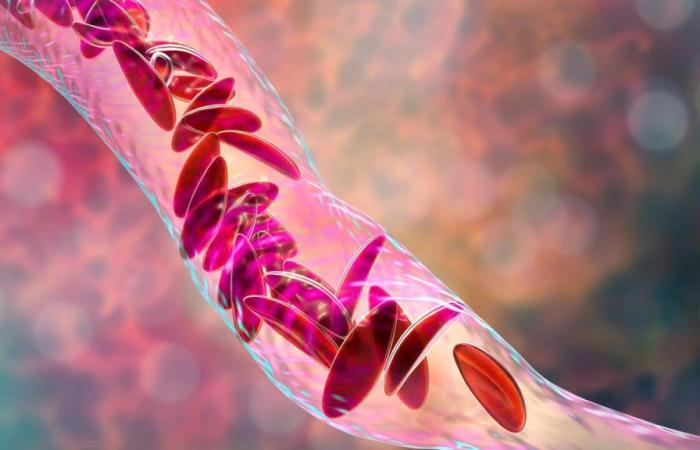June 19 is World Sickle Cell Day. The first genetic disease in the world, sickle cell disease affects more than 120 million people, nearly 66% of whom live in Africa, according to the WHO. This disease, which affects the hemoglobin of red blood cells, causes painful crises and a risk of infections in people with anemia.
Although current treatments have made it possible to increase the expectancy and quality of life of sickle cell patients, the absence of screening programs, particularly in Africa, does not make it possible to provide precise data on the disease. Furthermore, if certain pathologies benefit from free treatments on the African continent (tuberculosis – HIV AIDS), the treatments for sickle cell anemia (hydroxyurea) remain inaccessible to many patients, as do analgesics (morphine), to deal with intense pain. associated with vaso-occlusive crises, including in children.
So, how can we raise awareness about the disease? What prevention should be carried out to allow earlier diagnosis? What are the levers for action for better access to care? Finally, what are the advances in research?
- Dr Françoise Norolpediatric hematologist, former director of the Cellular and Gene Therapy Unit at the Pitié Salpêtrière AP-HP hospital in Paris and coordinator of the hemoglobinopathy program for MSF.
- Professor Léon TSHILOLOdirector of the Biomedical Research Institute, associated with CEFA-Monkole, particularly dedicated to research on sickle cell disease, former Physician Director of the Monkole Hospital Center, Corresponding Member of the French Academy of Medicine and member of the Congolese Academy Sciences (ACCOS).
- Professor Marianne de Montalembert, pediatrician, specialist in sickle cell anemia, co-responsible for the Reference Center for the management of hemoglobin and red blood cell diseases at the Necker-Enfants Malades hospital in Paris. Director of ROFSED (West-France Network for Care of Children with Sickle Cell Disease). Head of the hemoglobin disease management group at the European Hematology Association.
Music programming :
► Jidenna – Bambi
► Rough too – The habit






